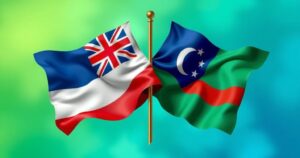South Sudan’s Hold-Out Groups Set for Peace Agreement After Extended Negotiations

South Sudan hold-out groups are set to sign a peace agreement in November after negotiating nine key protocols in high-level mediation. The discussions have resumed following a two-month hiatus, with the primary focus on the remaining protocol regarding Responsibility Sharing. The mediation, led by Lt-Gen (Rtd) Lazarus Sumbeiywo, seeks to unite various factions amidst ongoing tensions regarding power dynamics within the transitional government.
South Sudan’s hold-out groups are anticipated to finalize a peace agreement in November, following progress in high-level mediation discussions held in Nairobi. After completing nine protocols addressing critical agenda items, the upcoming agreement indicates a renewed commitment to resolving long-standing conflicts. Lt-Gen (Rtd) Lazarus Sumbeiywo, the chief mediator, noted that all but one of these protocols have been negotiated, with the last remaining protocol concerning Responsibility Sharing expected to be concluded shortly. The mediation team’s latest remarks suggest a revival of dialogue that had stalled for two months, as government representatives engaged in consultations in Juba. Despite some apprehensions among opposition members regarding the delays, Lt-Gen Sumbeiywo reassured that such consultations are typical in mediation processes. The talks, formally named the Tumaini Initiative, involve the coalition government led by President Salva Kiir and various opposition factions that initially refused to sign the 2018 peace agreement establishing the transitional government. While significant progress has been made, tensions persist regarding the government’s willingness to incorporate hold-out groups into the coalition, with some officials fearing a dilution of their influence. Recent developments include the dismissal of Gen Akol Koor Kuc, the head of the National Security Services, an action that may relate to the internal divisions regarding the Tumaini initiative. Furthermore, Dr. Riek Machar, a prominent figure within the coalition government, has expressed opposition to certain protocols, citing potential conflicts with the foundational principles of the 2018 peace agreement. The protocols currently under discussion encompass a variety of issues, including but not limited to justice reforms, security sector reforms, humanitarian access, and economic recovery. The opposition coalition, Ssoma, asserts that adherence to these protocols is crucial in averting ongoing conflict and has criticized the transitional government for perceived inaction. Political analysts cite the significance of the Tumaini Initiative as a mechanism for fostering unity; however, concerns linger about its integration with existing peace frameworks and perceptions of legitimacy. Additionally, the transitional government recently postponed upcoming elections previously scheduled for December, extending its mandate for another two years amidst criticisms from international donors regarding the political stagnation and lack of timely progress in governance.
The context of this mediation effort arises from South Sudan’s tumultuous political landscape, where various factions have grappled for power since the country’s inception. The 2018 peace agreement aimed to establish a transitional government following years of civil conflict, yet significant groups known as hold-outs have resisted involvement in the process. The Tumaini Initiative aims to address these challenges by facilitating dialogue and fostering political reconciliation among disparate factions. This renewed mediation signifies an acknowledgment that without comprehensive involvement of all parties, sustainable peace remains elusive.
In summary, the anticipated signing of a peace agreement by South Sudan’s hold-out groups next month marks a crucial development in the nation’s quest for political stability. Despite significant advancements in negotiations, challenges, including internal opposition and potential conflicts with existing agreements, continue to pose hurdles. The ongoing discussions under the Tumaini Initiative highlight the complexities of South Sudan’s political landscape and the necessity for cohesive stakeholder engagement to achieve lasting peace.
Original Source: www.theeastafrican.co.ke








